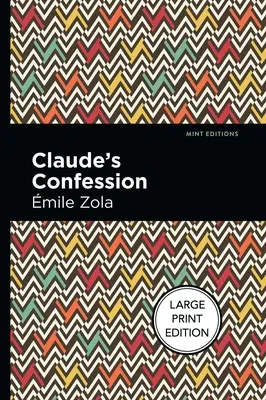Claude's Confession (1865) is a novel by French author Émile Zola.
Written at night while Zola was employed at Hachette, Claude's
Confession proved scandalous upon publication and resulted in the loss
of his job. Undeterred by the response to his literary debut, Zola took
advantage of his newfound infamy in order to embark on a career as one
of France's foremost experimental writers. Intent on exploring taboo and
the lives of people on the edge of society, Zola crafts a narrative
capable of illuminating the human condition while humanizing those
typically disdained by the literary elite. Born and raised in Provence,
Claude is shocked to find that the Paris of legend is a city mired in
poverty, decay, and loneliness. As he struggles to make ends meet in
order to pay for his tiny apartment, he takes notice of a young woman
who lives in the same building as him. Although he knows she is a
prostitute, his feelings for him grow stronger than the impulse to look
down on her way of life. After months of silent longing, he opens his
door to find her standing there, desperate for help after being evicted.
Despite his limited income, he welcomes her inside, and their
relationship soon develops into a passionate romance. Claude's
Confession is a story of forbidden love, fading hope, and the false
promise of modern life. Written at the very beginning of Zola's career,
it shows the innerworkings of a young mind interested in subjects too
often ignored by writers, a mind whose guiding principle is truth and
truth alone. With a beautifully designed cover and professionally
typeset manuscript, this edition of Émile Zola's Claude's Confession
is a classic work of French literature reimagined for modern readers.


